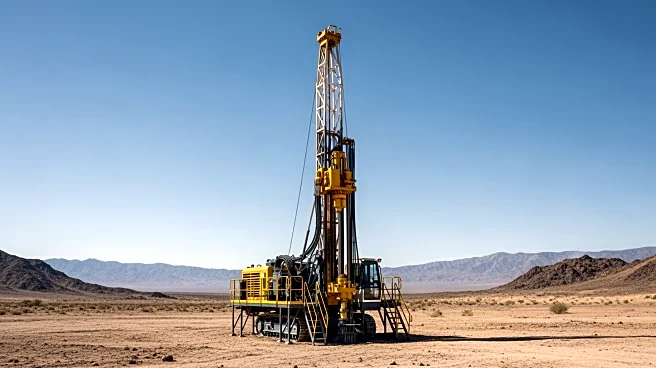What's Happening?
Patagonia Lithium has announced the launch of a $600 million drilling program aimed at expanding its lithium resources in Argentina. The drilling will take place at the Cilon project’s JAM 25-5 well, with
plans to reach a depth of 600 meters starting on October 27, 2025. The company has sought permission from the Jujuy Mines Department to drill approximately 300 meters from the edge of a salt lake, utilizing a 100-meter steel pipe to prevent contamination of surface or near-surface brine. Additionally, in Goiás State, near the CMOC niobium mine, Patagonia Lithium has identified 11 drill targets for upcoming auger and aircore drilling. The company, led by Executive Chair Phillip Thomas, has acquired exploration licenses over three properties in Argentina's lithium triangle, located in the Salta and Jujuy Provinces. Patagonia Lithium has assembled a team of geologists, drillers, lawyers, and logistics personnel to support the development of these prospects.
Why It's Important?
The expansion of lithium resources by Patagonia Lithium is significant as it aligns with the growing global demand for lithium, a critical component in electric vehicle batteries and renewable energy storage solutions. This initiative could bolster Argentina's position as a key player in the lithium market, potentially attracting further investment and development in the region. The program's success could also contribute to the stabilization of lithium supply chains, which are crucial for the burgeoning electric vehicle industry. Stakeholders in the renewable energy and automotive sectors stand to benefit from increased lithium availability, which could lead to cost reductions and enhanced technological advancements.
What's Next?
As Patagonia Lithium progresses with its drilling program, the company will likely focus on securing necessary permits and ensuring environmental compliance to mitigate any potential ecological impacts. The results of the drilling could influence future investment decisions and partnerships within the lithium industry. Additionally, the company may explore further expansion opportunities in other regions of the lithium triangle, depending on the success of the current program. Stakeholders, including local governments and environmental groups, will be closely monitoring the project's impact on the region's ecosystem and economy.










